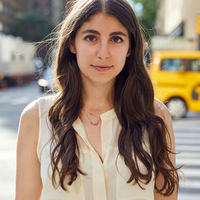For Ari Graynor, Playing Leslie Abramson in 'Monsters' Was the 'Gift of a Lifetime'
The actress knew little about the Menendez brothers' case before getting cast as the defense attorney.
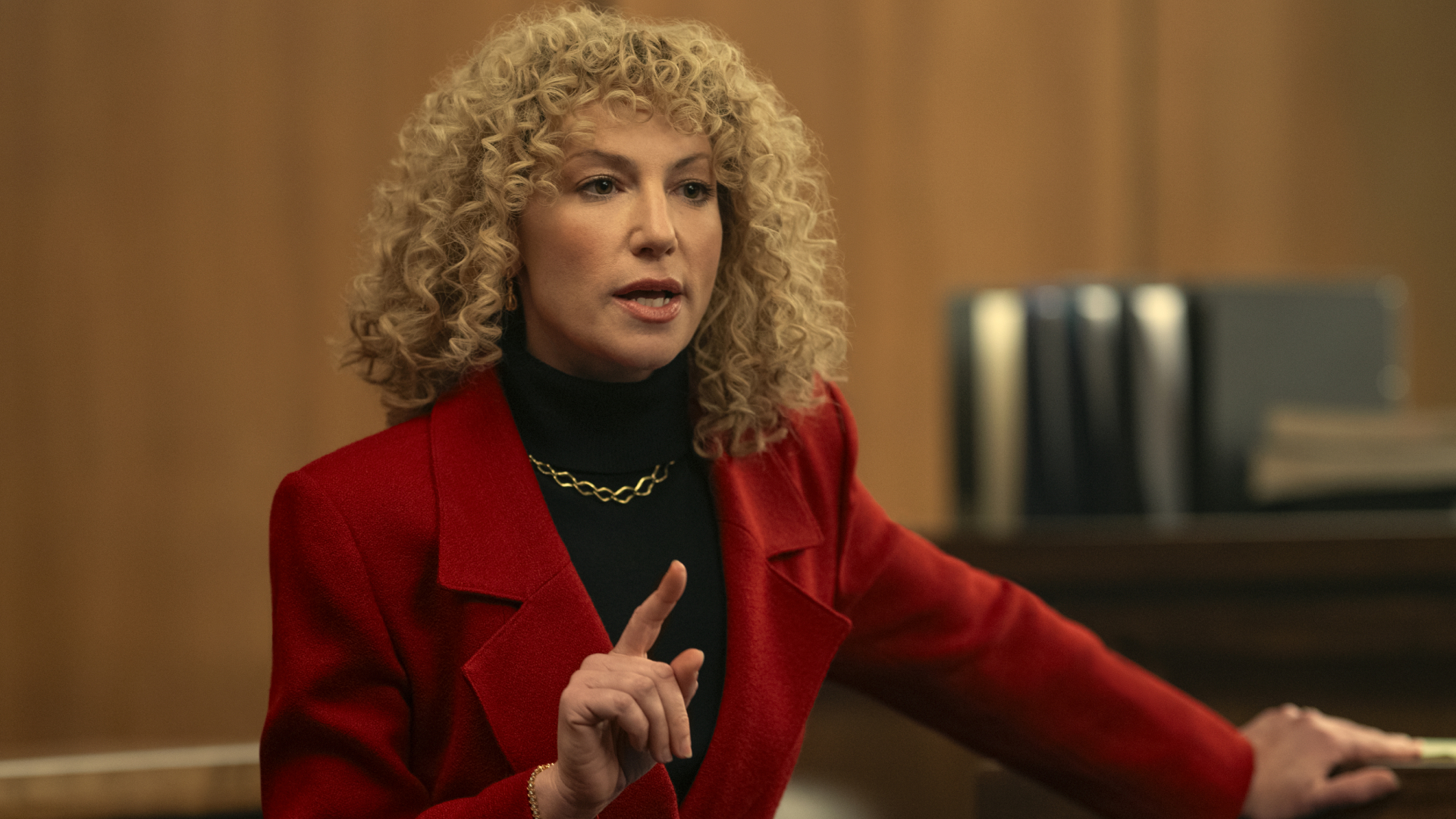
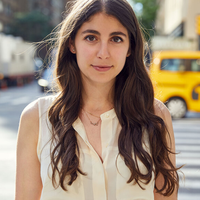
Ari Graynor has been a working actor for more than 20 years, appearing as memorable characters in The Sopranos, Winning Time, and Nick & Norah’s Infinite Playlist. But never in her career has the 41-year-old been part of a project that became a cultural lightning rod quite like Monsters: The Lyle and Erik Menendez Story, Ryan Murphy’s Netflix series that tells the story of the 1989 slayings of José and Kitty Menendez by their sons Lyle and Erik. The murders and the subsequent two trials (the first ended in a mistrial and the second found both brothers guilty of first-degree murder) captivated the country in the early ‘90s; at the center of the frenzy was Erik’s defense attorney Leslie Abramson, a woman who The Washington Post once described as a “4-ft-11, fire-eating, mud-slinging, nuclear-strength pain in the legal butt.”
Throughout nine episodes, Graynor, in a corkscrew blonde wig, plays Abramson with warmth, power, and nuance. She becomes more than just a lawyer to the boys. As she builds a defense based on Erik and Lyle’s testimony of a childhood filled with sexual abuse at the hands of their father, Abramson becomes their protector, mother figure, and confidante—even when she’s vilified in the media and portrayed as overbearing, brash, and self-serving.
With early awards buzz for Graynor and the series swirling, the Boston-born actress spoke from her home in upstate N.Y. about the strength she found in playing Leslie, her hopes the case will be reopened following the show’s success, and the craft that went into filming the show’s riveting fifth episode—a 33-minute scene, shot in one take.
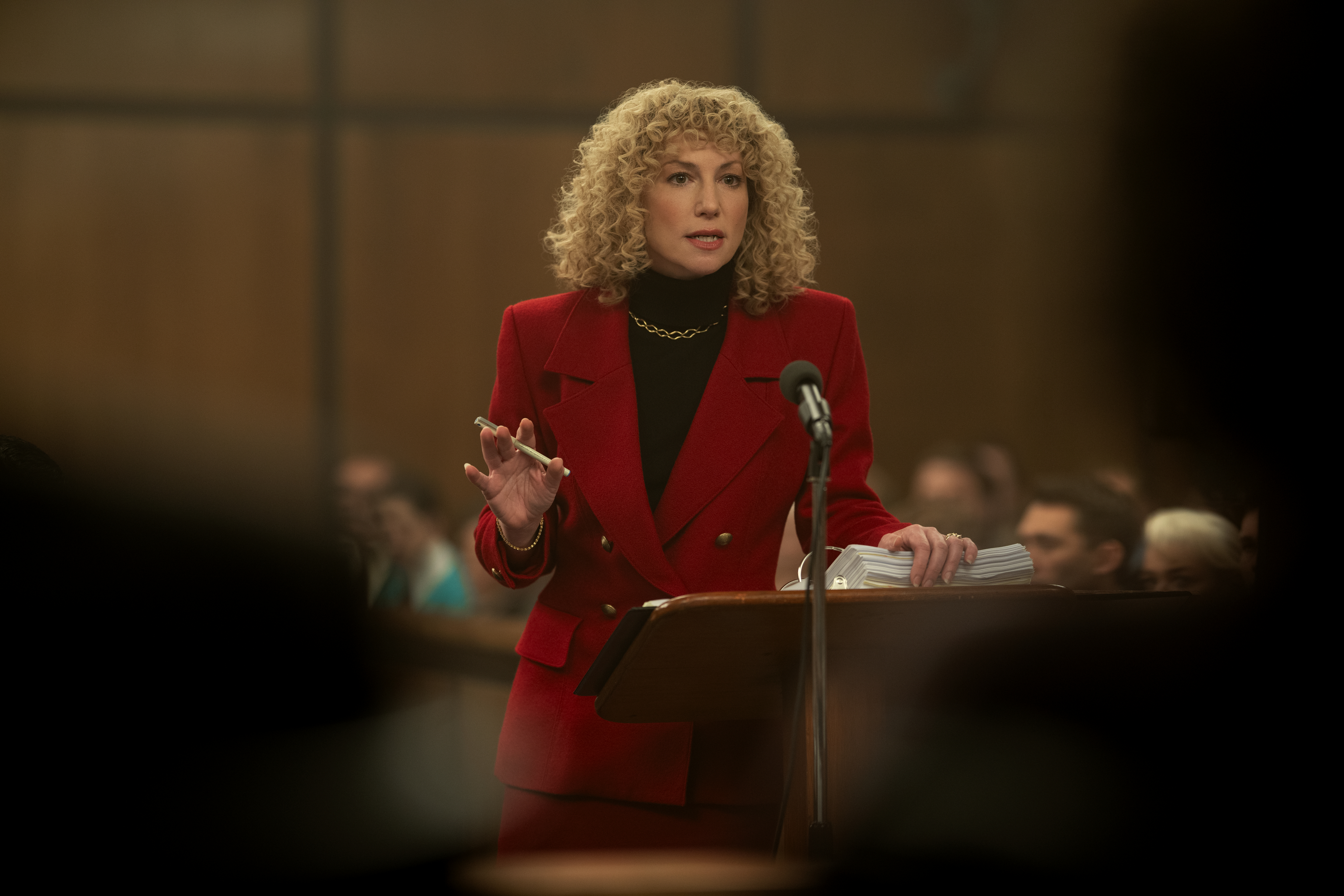
Ari Graynor as Leslie Abramson, addressing the jurors, in Monsters: The Lyle and Erik Menendez Story.
Marie Claire: What was your reaction when you first heard about the role? What was the casting process like?
Ari Graynor: I auditioned for this the day before the actors strike and got the offer the day the strike ended, which is an unbelievable miracle because like so many other people, I was really in a tailspin during the strike. Then came this incredible, true gift of a lifetime to play this woman that I'm just so in love with. When I got the material, it was just a few scenes: the intro to Leslie when she's in the adoption office and the first time she meets Erik.
I had known about the case a little bit, but nothing in depth. I started diving into her and it's been a rabbit hole for the last year. I would sleep with her audiobook playing. I would sleep with the trial on. I'm still carrying her book around with me wherever I go.
When I went in for casting, I felt such a kinship to her immediately. This powerful, charismatic, funny, irreverent woman in a power suit that really resonated with me. One of the enormous gifts of playing her was to embody those parts of myself that I think over time as a woman, as an actress, you diminish.
Get exclusive access to fashion and beauty trends, hot-off-the-press celebrity news, and more.
As an actor, I do this creative ‘dream work’ of integrating her whole history and childhood and how she was raised to make those memories feel like they're coming from the inside out. I also had to do my own personal work of confronting my fear about stepping into her shoes and really having a sense inside myself that this was meant to be. I had all those self-doubts of, What if I can't fill her shoes? What if I get in my own way?
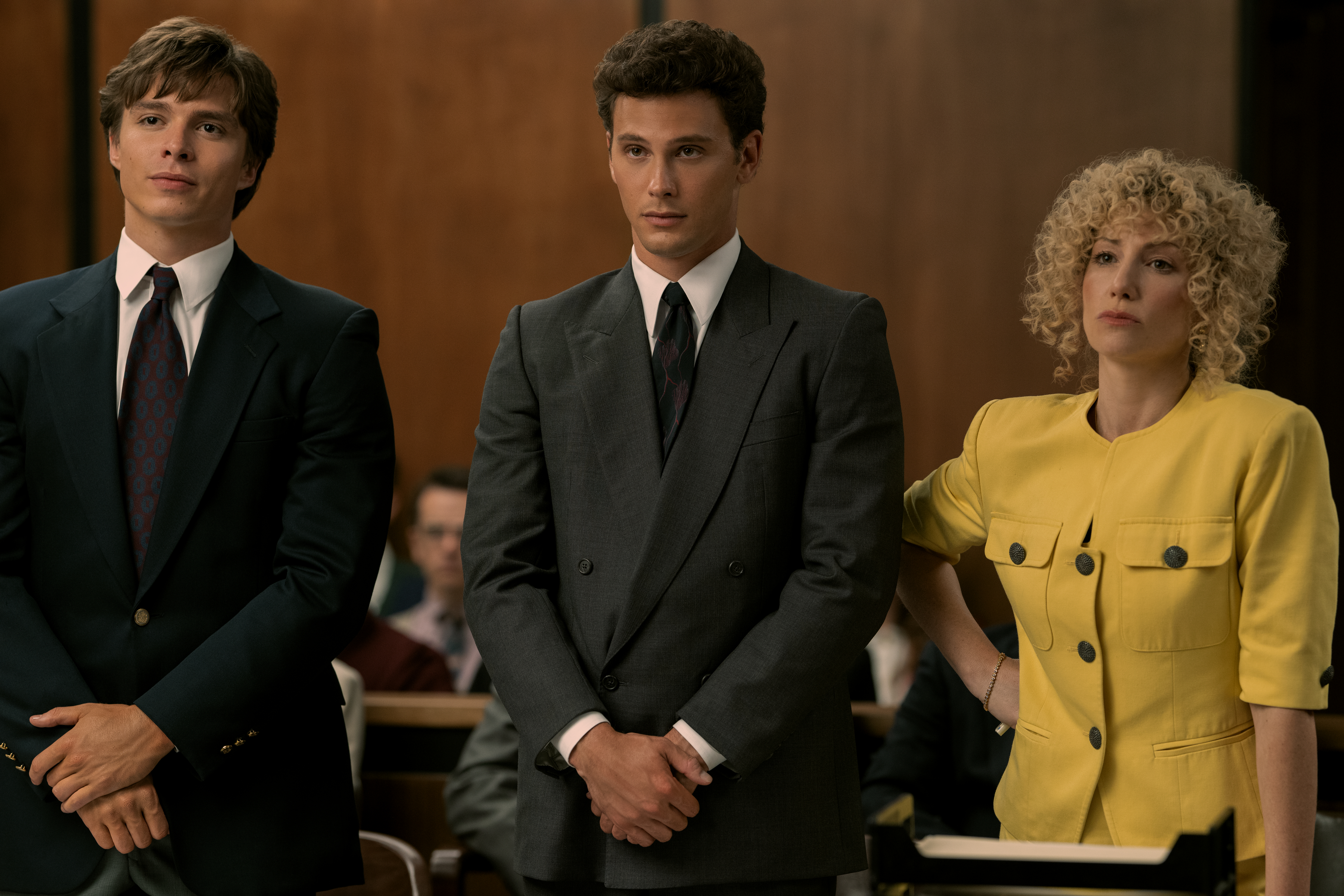
Lyle (Nicholas Chavez) and Erik Menendez (Cooper Koch) appear with their defense attorney (Graynor) in the court room.
MC: Erik Menendez and his extended family have released statements slamming the series for inaccuracies and “slander.” And Cooper Koch, who plays Erik, visited the brothers in prison alongside Kim Kardashian. Cooper has said in interviews that he wants to advocate for them. How do you view the actor-as-advocate relationship in this situation?
AG: All of us, but I think especially Cooper and I, who became very close during this—he is my absolute love, and the first person I spoke to when this part was official—felt very close to the boys and Leslie. Leslie was such a fierce advocate and protective mother to them in many ways.
Had I been in L.A., I probably would've gone with Cooper on that trip. Erik has spent two-thirds of his life in prison. Enough is enough already. There's new evidence. It's time for this to be relooked at.
I think the incredible thing about the show, regardless of how people feel about it—and it is polarizing and it is holding a lot of different points of view at once—it's incredible to see the way culture has changed in 35 years. We almost take for granted now that everyone's like, "They were abused." They were. Thirty-five years ago, people were not taking that seriously. This is a huge leap in consciousness.
I hope that this show, and the conversation around this show, is ultimately helpful for them in having this case be relooked at. I think it's a mirror for how much we've changed as a culture.
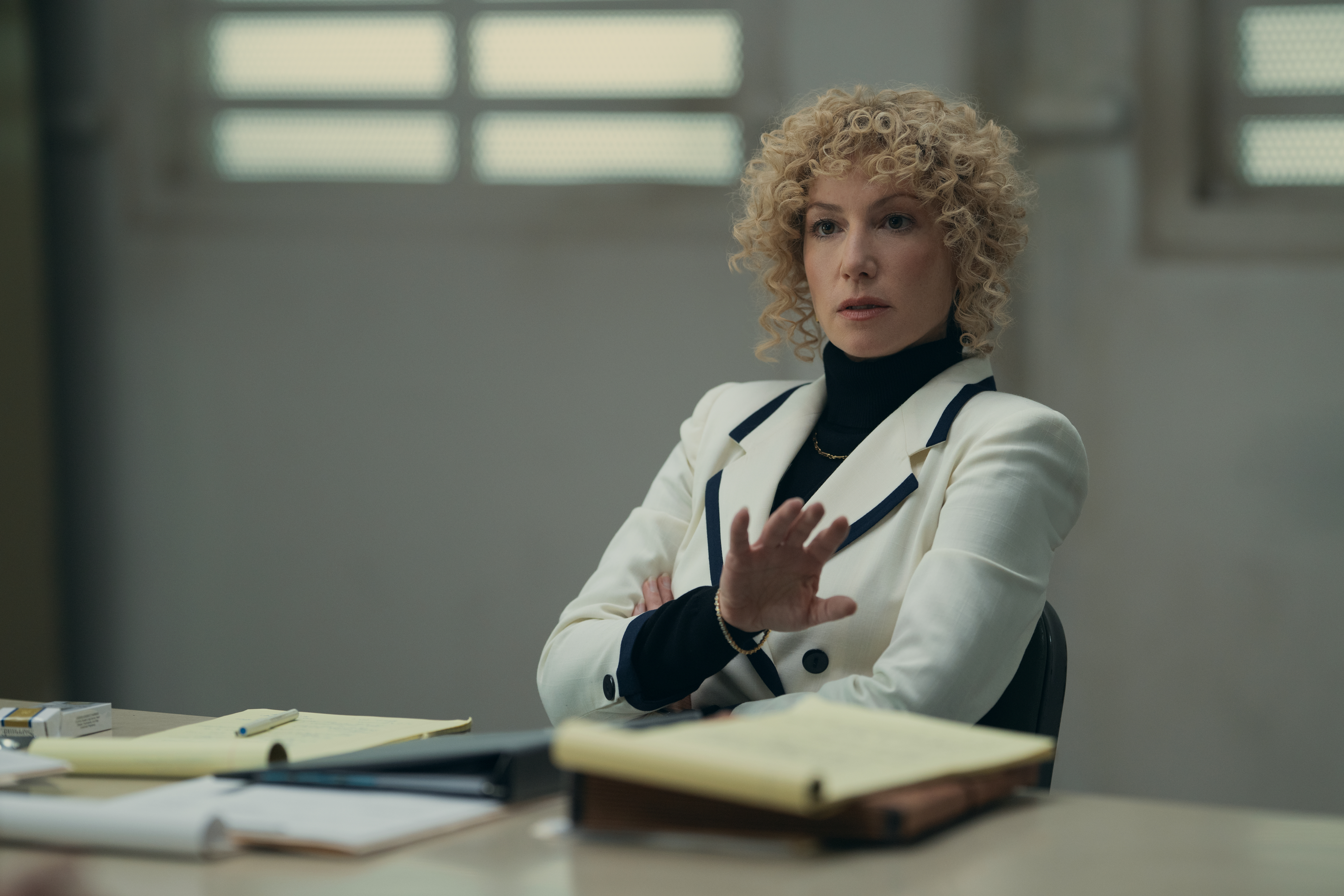
Leslie Abramson (Graynor) visiting her clients to prepare for trial.
MC: In episode five, Erik and Leslie sit in a questioning room and Erik tells Leslie about all of the sexual abuse he faced as a child at the hands of his father and how his mother did not protect him. This is the core of their legal defense. Erik faces the camera, but for nearly all of the episode we only see Leslie’s back and hand gestures, and hear her voice as she listens. It’s a harrowing episode and there’s not a lot of room for error. How did you do it?
AG: They sent me the first five scripts, and I read this episode, and then I put it down for four months. I felt so intimidated because you really have to know who somebody is to know how they listen. I really had to get inside Leslie and feel that I knew everything about her and how she would be. She's holding a lot of different things: She's a lawyer trying to understand a story. She's a therapist holding space for this unbearable and unspeakable life experience that Erik had never shared before. It's also the episode we spoke a lot about when she becomes his ‘mother.’
They wrote the script a year before we started shooting it, and that one shot was written in there. I had the opportunity to hold space for him and to say the things that somebody might need to hear like, “You did not deserve that. That is not a mother. That was because of her, not because of you.”
I finally started picking up the script when I knew we had a date of when we were going to shoot it. Cooper and I ran through it a few times for lines. We lived five minutes away from each other while we were shooting so he would be over almost every day. We spent copious amounts of time on my porch talking about everything. He had memorized it before production had even begun. He was just so incredibly prepared and cared so deeply and took it so seriously, as did I.
I hope that this show, and the conversation around this show, is ultimately helpful for them in having this case be relooked at. I think it's a mirror for how much we've changed as a culture.
Then we rode over to rehearsal together and we did a rehearsal. It was the first time we'd really done it out loud, and we did it in the room—just a small group of us—and we were all crying and quiet after. And Michael Uppendahl, who directed it, basically said, "I don't really want to touch it or talk about it too much. I think we should just shoot it."
We shot it eight times over two days. We did it four full times each day. It was different every time. We were as locked in together as friends and artists and collaborators. It was one of those magical experiences where, without words, we just were completely in tune with each other. I just wanted to give him every ounce of presence that I could conjure in myself.
By that point, I felt so close to Leslie as well that it didn't matter to me where the camera was. I didn't know what it was. It wasn't going to change what we were doing, and it felt like doing a play.
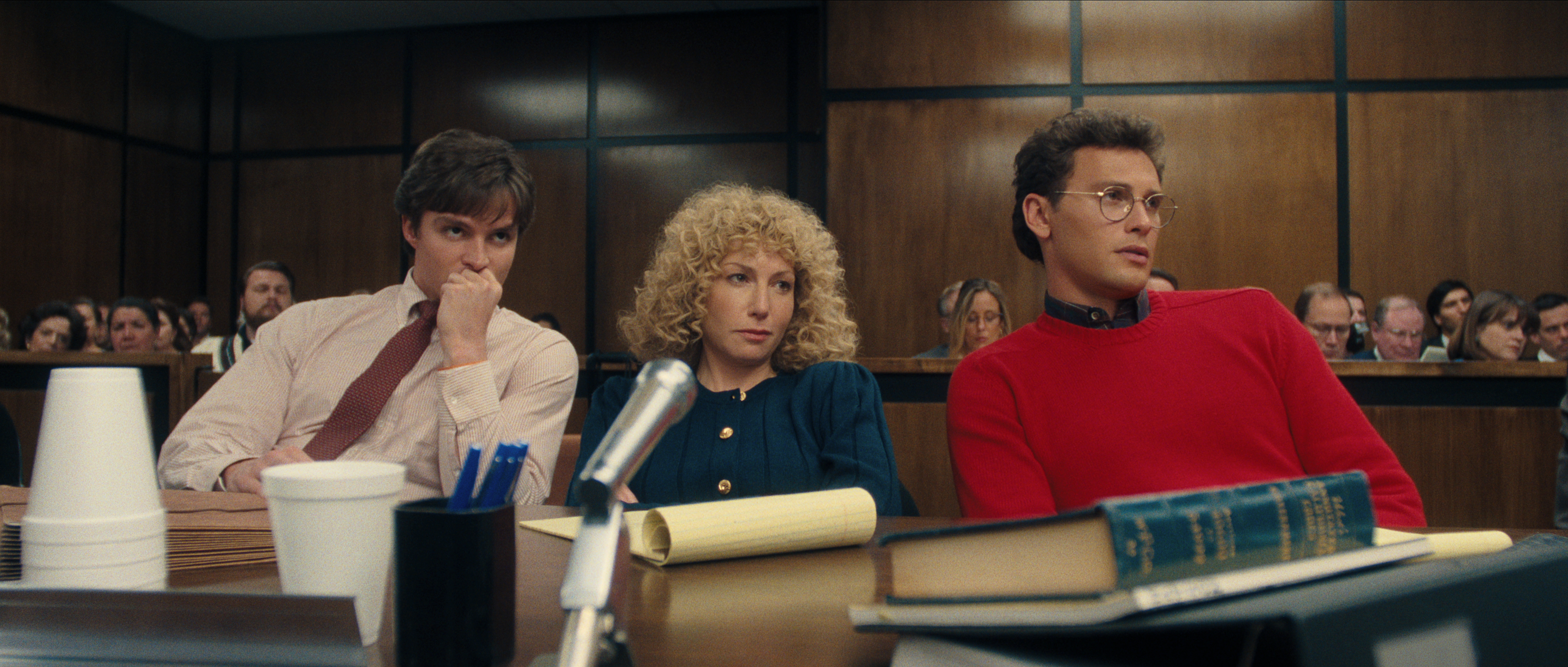
Leslie Abramson and her clients Lyle (Chavez) and Erik Menendez (Koch) listen to the prosecution's statements.
MC: Have you seen the final cut? What's your take on what that one was in compared to the other takes?
AG: The one that they ended up using was the last time we did it. So often when people are talking about the hardest parts of their life and the worst thing that's happened, there is a matter-of-factness about it. In other takes, we did it emotionally in a way that felt cathartic for us. It was probably a lot longer. There was more crying. There was more emotion. Sometimes, as an actor, what feels really good to you takes away from the catharsis that the audience can feel. Sometimes they say, "If you're crying, the audience can't cry."
It was a process of moving through different levels of emotion and fine-tuning those beats. I totally understand why that was the one they chose.
MC: Later in this series, after the mistrial, Leslie's trying to get feedback from the jurors, and one juror tells her, “They hated you.” Erik also gets upset and says the same thing. What about her was so off-putting to jurors and the media? What about her made people react that way?
AG: Listen, people don't love a strong aggressive woman all the time. Especially in the ‘90s, a woman that strong, smart, unafraid of conflict, aggressive… These are qualities we know are appreciated and accepted in men, and questioned in women. Strength gets redefined as being overbearing. She's not a quiet, demure lady. She has this quote that she's like, "Not everyone's going to like me. I never said I was Shirley Temple."
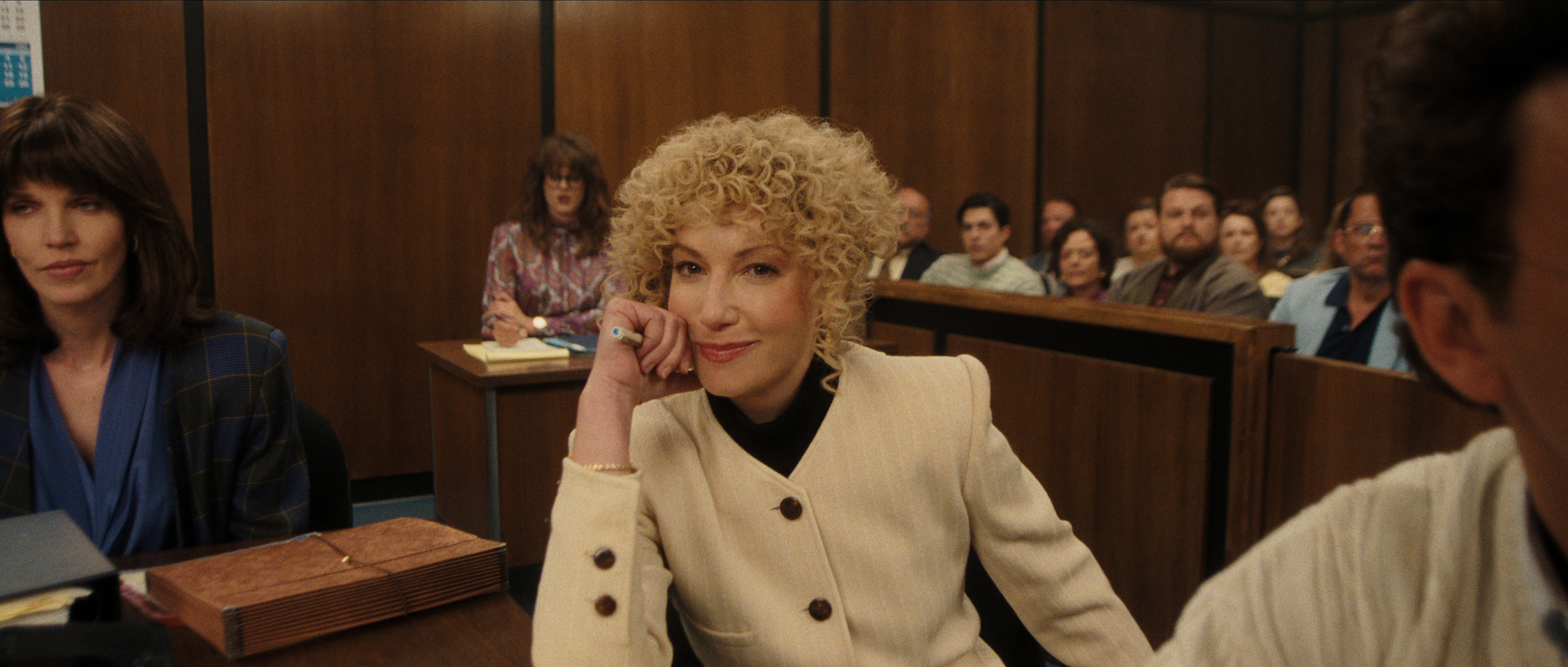
Graynor says she fell "deeply in love with" Abramson while preparing for the role.
MC: Did you ever reach out to her or try to contact her?
AG: I haven't, although I've written her about a thousand drafts of an email that I've been thinking about relooking at now. In my research, I came to discover this was an unbelievably painful time for her. This was a massive heartbreak. She really, I believed, loved the boys, especially Erik, and for her to feel like she was not able to save them after everything they had been through was unbearable.
She was quite vocal about her distaste for the media. As an actor, I felt like trying to revisit this moment with her that had existed 35 years before, however she might look at it now, wouldn't necessarily be helpful for me to tell the truth of that time.
I fell deeply in love with her. I mean, I really love her. I miss her in the way you miss somebody that has left your life. I'll find myself tearing up thinking about her. I have deep respect for her and admiration and think that she was such a multifaceted human being. First of all, she went to law school in 1967 as a single mom in her early 20s. She came up as a public defender, working in juvenile courts. Her being a defense attorney was really about wanting to fight injustice and fairness and the belief in the legal system that everybody deserves a defense and really fighting for the underdog. She believed people are more than the worst thing that they did.
People don't love a strong aggressive woman all the time. Especially in the ‘90s, a woman that strong, smart, unafraid of conflict, aggressive… These are qualities we know are appreciated and accepted in men, and questioned in women. Strength gets redefined as being overbearing. She's not a quiet, demure lady.
MC: You’ve been acting for more than 20 years, but you mentioned that before you got this role you were reassessing your career. How do you view your career up until now? Does this feel like an inflection point—a before and after?
AG: There's been a lot of heartbreak through the years of wanting to find the place to express yourself. As an actor, it's tricky because you can't do it alone. If you're a musician, you can play music in your house, even if you don't have a stadium. To act, you really need others and you need an audience. There is an exchange.
In the moment before this happened, there was a reality check of “this might not happen in the way that I hope. I might not get the chance to express all that's inside of me through characters.”
We'll see what the long game is with Monsters, but certainly to be a part of a Ryan Murphy show… He is one of our most prolific creators out there right now, and what he does with female characters is just extraordinary and really singular.
The audience of Netflix is a whole other ballgame I've never been anywhere near. Everything I've been in, you've just been begging and hoping that somebody is going to watch it. But I still have that fear of “What’s next?” We just got done with the junket yesterday and I think, "Well, now I have nothing to do for the rest of my life." Let's see what happens.
Hopefully, this will be the beginning of the next chapter of my career in some ways, but one never knows. I keep reminding myself I've already gotten the gift, which was to play her and be a part of this. I'm always fascinated by the difference between hope and expectation. I'm trying really hard to lean on hope and not expectation.
Jessica Goodman is the New York Times bestselling author of The Counselors, They'll Never Catch Us, and They Wish They Were Us. She is the former op-ed editor at Cosmopolitan magazine, and was part of the 2017 team that won a National Magazine Award in personal service. She has also held editorial positions at Entertainment Weekly and HuffPost, and her work has been published in outlets like Glamour, Condé Nast Traveler, Elle, and Marie Claire.
